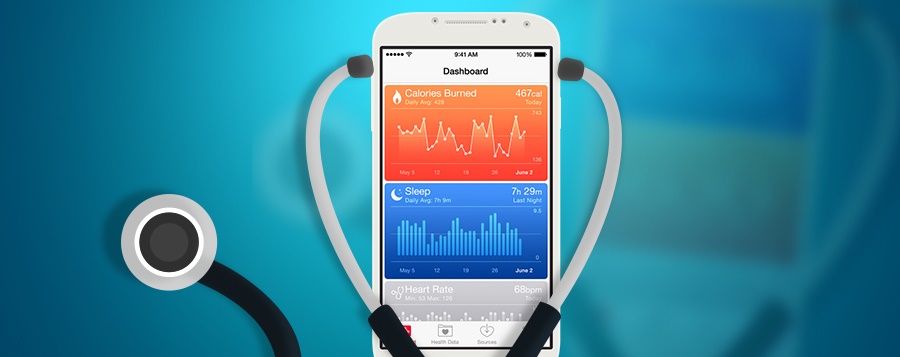Aug 25
2022
Healthcare Mobile Application Development: Main Types of Medical Apps and Tips for Creating

The horizon of healthcare mobile application development is expanding through limitless boundaries after the world hits the massive pandemic. Even though it’s the era of tech evolution, healthcare mobile application development has followed an impactful drift. Following the link, you can find the most detailed article by Topflight Apps on this topic.
If you’re curious to dwell on the running subject and know how to build a medical app, here’s something fascinating for you:
Why is Healthcare Mobile App Development Necessary?
The attainable fitness goals and a patient-centered healthcare approach are the two main reasons compelling the developers to build healthcare applications.
The benefits of adhering health care services to mobile applications are numerous, whereas a few are discussed below:
- If you create a medical app, your services won’t be confined to patients; these apps are equally beneficial for healthcare workers and physicians.
- Building a health app not only makes patients stay updated with their health progress but also keeps track of their lab tests side by side. Thus, consistent monitoring also suggests timely lab testing (Blood CP, LFTs, etc.)
- Some healthcare apps also facilitate patients’ dietary uptake according to their ailment or particular health condition.
- A patient-physician communication plays a critical role in developing a diagnosis. Medical apps have a profound impact on the said subject.
- Data kept in the digital record is easy to transfer for clinical review purposes and is retrievable at any time.
Types of Healthcare Mobile Applications – User-Based Classification
If you’re searching for tried and tested ways how to create a health app, then make sure you’re entitled to any of these types:
Applications with Management Interface
These apps are aimed to provide an instantly approachable monitoring module to the doctors and healthcare staff. The healthcare providers or the clinical managers can remotely monitor their patient’s progress and current health status.
Some apps also include the hospital staff management interface along with patient management. Hence, the practitioners can easily surf between the two moods without individual assessments.
A management-based app is supposed to have the following features:
- A broad spectrum database (patients and staff)
- Health trackers
- Networking options
- Prescription and dosage management tools
- Telemedicine
Apps with Patients Interface
These types of apps are developed keeping in view the patient’s interface. At the same time, they have got the charge of monitoring their health parameters remotely and share with the doctor.
Hence, this model of healthcare app development makes it easier for the care providers to form accurate diagnoses and prognoses.
The classical features of patient-based mobile apps are:
- Daily vitals monitoring reminders
- Medicine trackers
- Diagnosis labels
- Lab tests attachments (as a disease record)
- Physical and mental fitness (exercise programs)
- Appointment schedule or rescheduling
- Physician choice
Types of Healthcare Mobile Applications – Service-Based Classification
In your journey to find the kind of medical app you want to develop, you’ll find these service-based apps:
- EHR (Electronic Health Record): EHR encompasses the complete patient data from entry to assessment, lab testing, and diagnosis.
- Telemedicine: Telemedicine or telehealth clinics are digital clinics providing remote consultations.
- HIE (Health Information Exchange): HIE refers to quick vitals monitoring to transfer for further diagnosis or assessment.
- Medical Bill Calculators: It is a form of Reliability Centered Maintenance or RCM that allows service user and practitioners to access their bills on the go.
- Automated Diagnostic Softwares: These apps have a built-in diagnostic capacity derived from the EHR that can make an accurate and errorless diagnosis within no time.
- Electronic or Automated Prescription: These apps derive data from health databases and recommend prescriptions and dosage.
How to Build a Medical App – Current Trends
To make your way into the world of healthcare mobile application development, acquaint yourself with the latest trends. Here’s the list of our handpicked suggestions:
- At-home workout apps (wearable software)
- Risks exposure calculators
- Digital pharmacies
- Healthcare system networking portals
- Data records for research purposes
- Dietary consultations
- Physical fitness goals and lifestyle tracking apps
- Apps for patients assistants for rare diseases management
Final Verdict:
The facts spilled above boil down to one common conclusion: medical app development requires exceptional expertise for an accurate health records interpretation. Your inquiry about how to build a medical app has already covered all significant aspects of a medical app development startup.